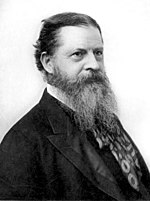The analytic–synthetic distinction is a semantic distinction used primarily in philosophy to distinguish between propositions (in particular, statements... 36 KB (4,448 words) - 13:00, 12 March 2024 |
A priori and a posteriori (redirect from A priori-a posteriori distinction) is what Boghossian calls the "analytic explanation of the a priori." The distinction between analytic and synthetic propositions was first introduced... 27 KB (2,904 words) - 15:46, 28 February 2024 |
Epistemology (section Analytic–synthetic distinction) Immanuel Kant, in his Critique of Pure Reason, drew a distinction between "analytic" and "synthetic" propositions. He contended that some propositions are... 133 KB (13,790 words) - 07:17, 8 May 2024 |
Social science Management Analytic-synthetic distinction Logic Critical thinking Lateral thinking Deductive reasoning Analytical skill Analysis Analysis... 5 KB (517 words) - 18:01, 27 April 2024 |
adequate explanation of synonyms. Analytic–synthetic distinction Duhem–Quine thesis Internal-external distinction Meaning (linguistics) Meta-ontology... 12 KB (1,487 words) - 06:06, 23 April 2024 |
Logical positivism (category Analytic philosophy) as a critic of this movement... The analytic/synthetic distinction and the observational/theoretical distinction were tied together by the verifiability... 70 KB (8,117 words) - 19:29, 7 April 2024 |
materials Synthetic position, a concept in finance Synthetic-aperture radar, a type or radar Analytic–synthetic distinction, in philosophy Synthetic language... 2 KB (325 words) - 04:26, 23 July 2023 |
 | Hume's fork (category Conceptual distinctions) Hume's fork asserts that all statements are exclusively either "analytic a priori" or "synthetic a posteriori," which, respectively, are universally true by... 15 KB (1,947 words) - 23:56, 6 May 2024 |
 | Willard Van Orman Quine (category Analytic philosophers) Dogmas of Empiricism" (1951), which attacked the traditional analytic-synthetic distinction and reductionism, undermining the then-popular logical positivism... 57 KB (6,499 words) - 02:33, 22 April 2024 |
Antithesis between the Synthetic and the Analytic Method in Modern Geometry: The distinction between modern synthesis and modern analytic geometry must no longer... 14 KB (1,738 words) - 11:40, 28 December 2023 |
Two Dogmas of Empiricism (category Analytic philosophy literature) positivists' philosophy: the first being the analytic–synthetic distinction between analytic truths and synthetic truths, explained by Quine as truths grounded... 18 KB (2,549 words) - 16:02, 13 September 2023 |
Philosophical analysis (category Analytic philosophy) current criticisms of the analytic method derive from W.V. Quine's famous rejection of the analytic–synthetic distinction. While Quine's critique is... 10 KB (1,342 words) - 02:56, 31 January 2024 |
"Knowledge how" Knowledge by acquaintance A priori and a posteriori Analytic–synthetic distinction Gettier problem Justification Regress argument Theories of justification... 5 KB (438 words) - 12:08, 30 October 2023 |
this work is not directed at the internal-external distinction but at the analytic–synthetic distinction brought up by Carnap in his work on logic: Meaning... 23 KB (2,728 words) - 19:30, 18 January 2024 |
Verificationism (category Analytic philosophy) Tractatus, and, led by Bertrand Russell, sought to reformulate the analytic–synthetic distinction in a way that would reduce mathematics and logic to semantical... 19 KB (2,270 words) - 00:37, 1 November 2023 |
obtaining knowledge – has a philosophical history dating from antiquity. The analytical nature of much of philosophical enquiry, the awareness of apparently a... 60 KB (6,962 words) - 13:24, 7 May 2024 |
 | many self-contradictions implicit in the whole.: 403 Strawson views the analytic argument of the transcendental deduction as the most valuable idea in the... 24 KB (3,036 words) - 11:45, 9 April 2024 |
 | priori (it is analytically true that no analytic proposition could be a posteriori). By contrast, a synthetic proposition is one the content of which... 153 KB (18,689 words) - 05:09, 4 May 2024 |
Kant who introduced the terminology. The distinction concerns the relation of a subject to its predicate: analytic claims are those in which the subject... 6 KB (667 words) - 02:23, 9 January 2024 |
 | Is–ought problem (redirect from Is-ought distinction) a fallacy. The is–ought problem is closely related to the fact–value distinction in epistemology. Though the terms are often used interchangeably, academic... 29 KB (3,844 words) - 22:57, 29 March 2024 |
 | Willard V. O. Quine to attack, among other things, the distinction between analytic and synthetic statements. British philosopher Susan Haack, following... 26 KB (2,886 words) - 13:15, 31 March 2024 |
Hegelianism. The distinction has also been drawn as analytic is academic or technical philosophy, while continental is literary philosophy. Analytic philosophy... 93 KB (10,710 words) - 17:54, 6 May 2024 |
Analytic apriori may refer to: A priori and a posteriori Analytic–synthetic distinction Analytic truth This disambiguation page lists articles associated... 160 bytes (47 words) - 16:34, 27 December 2019 |
are not without falling into the extraordinarily problematic analytic/synthetic distinction. Fodor and Lepore (1992) present several arguments to demonstrate... 26 KB (4,327 words) - 05:18, 28 May 2023 |
The fact–value distinction is a fundamental epistemological distinction described between: Statements of fact (positive or descriptive statements), based... 19 KB (2,470 words) - 03:53, 10 April 2024 |
as analytic, but it used to be fusional. Certain synthetic qualities (as in the inflection of verbs to show tense) were retained. The distinction is,... 27 KB (2,931 words) - 23:12, 6 April 2024 |
 | Kant further elaborates on the distinction between "analytic" and "synthetic" judgments. A proposition is analytic if the content of the predicate-concept... 115 KB (16,137 words) - 00:36, 9 May 2024 |
purely analytic truths, i.e. that all propositions are to some extent empirical. But others have explicitly defended the analytic-synthetic distinction against... 96 KB (11,673 words) - 08:57, 15 April 2024 |

